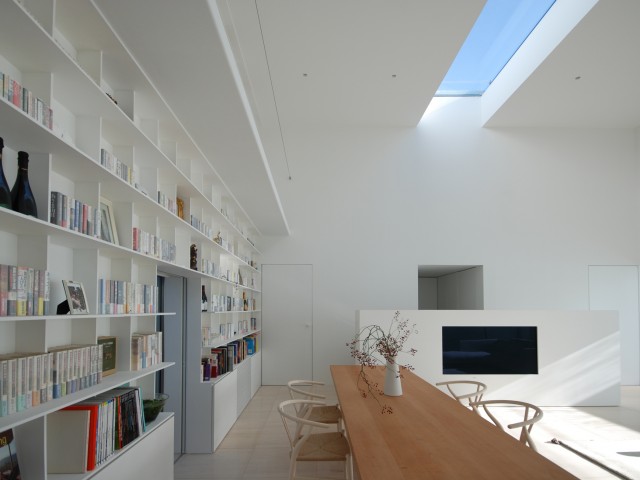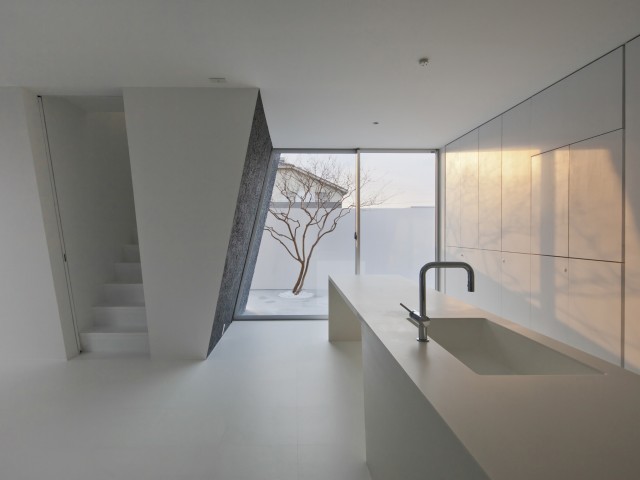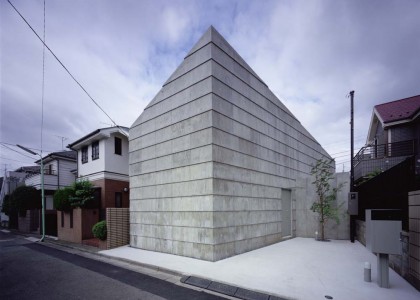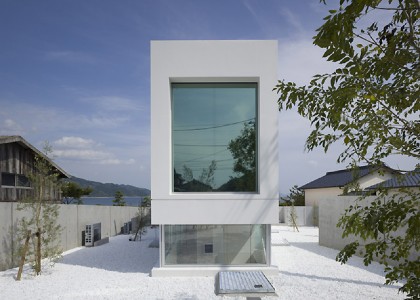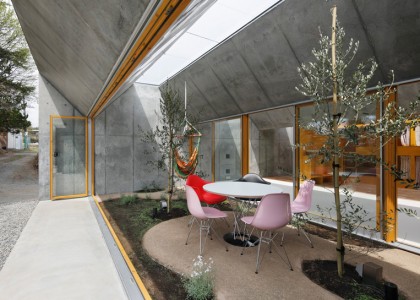Project Info
- Architects: MOUNT FUJI ARCHITECTS STUDIO
- Team: Masahiro Harada + Mao Harada
- Location: Tokyo, Tokyo Metropolis
- Photographs: Ryota Atarashi
- Function: Houses, Offices, SoHoes
- Completion: December 2006
- Structure: Reinforced concrete, partly steel frame
- Floor area: 279.58 m² (BF + 3F)
- Material: Concrete, Steel
SAKURA | MOUNT FUJI ARCHITECTS STUDIO
Words by mooponto Staff
December 15, 2012
SAKURA is a house with an office for a couple planned in a residential neighborhood in Meguro.
The site is situated in an area where land costs are among the highest in Tokyo. The area is typically cluttered, like most residential areas in downtown Tokyo. It is hard to say that the quality of living environment deserves the price of land.
I felt that creating a better living environment was a top priority upon squeezing in yet another house into this neighborhood. What came to my mind were the two classic ‘Glass Houses’ by Mies van der Rohe and Philip Johnson. The sense of freedom and openness that makes us want to walk naked inside these houses surely owes to the transparency of the glass itself, but it is the fact that the buildings are surrounded by a pleasant environment –the forest– that counts the most. Since ‘the forest’ itself already provides a comfortable living environment, it is left for the architecture to separate internal to external atmospheres with thin, transparent membranes. They clearly demonstrate that as long as there is an environment suitable for living, a ‘house’ is no more necessary.
What I looked to create here was a presence that would replace this ‘forest’.
More precisely, I attempted to generate a quality living environment by placing two large, swirled belt-shaped surfaces on the premises. The pair consists of self-standing walls measuring 7.5 m and 5 m high respectively, made of lace-like steel 3 mm thick that filters light like sunshine through the foliage, with holes punched out in a floral pattern depicting cherry blossoms, a traditional Ise paper stencil pattern.
As we make our way into the abstracted forest of cherry blossoms, we are greeted by an ‘environment filled with “anticipation” for a living comfort.’ There, nothing can be found that suggests a ‘setup’ of a ‘house’. The place is a pure ‘living environment’ and is neither a symbol called ‘house’ nor a ‘residential area.’
A bright depth, beyond the reach of urbanism, is born in Tokyo.



































